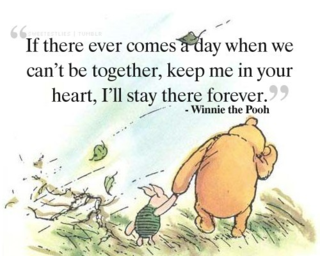As some of you know, my youngest child just went off to college. Although I’ve coached clients though the empty nest transition, it wasn’t until I went through this experience myself that I realized I needed coaching, too.
 Go figure.
Go figure.
Although I have a very full life–a satisfying career, a good marriage and a gaggle of friends– I never imagined I’d come unglued when I waved goodbye to my daughter. And just when I was getting used to seeing the floor underneath the pile of clothes in her room and enjoying the peace of mind that comes with no more waiting up and worrying when she was out late, BAM! She calls me, sick and crying. Nothing serious, just strep throat. Still, this small blip on my (and her) life’s radar screen threw me completely off center.
I was, in a phrase, a hot mess. As I wiped the snot away with the back of my hand and smeared Vaseline on my chafed nose, my wise self reminded me that this was the perfect entry point into my inner world and what I was making this transition really mean.
So I did what any life coach would do. I hired one myself.
Through this process, I realized that there are some things we Mama Bears need to be reminded of before we say and do all those Mama Bearish things that may appear loving, but that are actually a decoy for soothing our own feelings of discomfort. Worse, they may ultimately impact our children’s adjustment to their “new normal.”
1. Feel your feelings. The worst thing you can do is resist feeling what you are experiencing, whether it’s sadness, anger or irritation. Although my tears flowed a constant running toilet, I fought them and judged them. “How long is this going to last Jackie?,” I’d say sternly to myself. And when it began to seem obvious I had no answer to that awesome question, I berated myself with, “That’s enough!” (I did stop short of putting myself in time out—with wine, of course.)
Sometimes, I’d anticipate my sadness, like when, even as my husband and I moved our daughter into her form room, I was already thinking about how awful our final goodbye would be the next day.
Notice if you’re trying to control what you’re feeling in the moment by anticipating the future. Sadness or any negative emotion is often exacerbated by out attempts to deny, control, or stuff our feelings. Alanis Morisette sings, “The only way out is through, the faster we’ll feel better.” Jill Bolte Taylor says that when you feel a feeling all the way through, it takes only 90 seconds to process it. So try leaning into your feelings instead of resisting them, and you may just feel better before you know it.
2. Be aware of the mind chatter. Although this is a major transition and it’s appropriate to think you will miss your child and feel sad, notice what’s going on in your mind and if it’s causing you to experience intense stress, anxiety or emotion. My primary thought was, “I’m losing her,” which felt true but was actually just a string of words I was choosing to believe as I saw my daughter moving into her dorm. What was more true to me, which I discovered later, was that I felt like I was losing a part of me when I believed that I was losing my child. Ironically, I wasn’t showing up for her the way I always have, because I was too afraid I was losing her/myself. I became overprotective and over-reactive, poured over her FB statuses several times a day, and, in losing myself, lost connection with both who I am and with my daughter. If your stories are making you sad and detached, change your stories. Be with your children—and yourself.
3. Take the Alpha Dog position. Have you ever watched Dog Whisperer Cesar Milan? If so, you know that he helps desperate animal owners whose pets are completely out of control. He emphasizes how important it is to take the Alpha position with your pet. Although taking an Alpha position means you’re the boss who makes decisions for the pack, it also means that you exude an attitude of leadership that cultivates mutual respect and provides building blocks of communication. So the next time your kid calls or texts you because they feel like they’re never going to meet their peeps or are harboring any doubts about succeeding in college, don’t be tempted to decide what’s best for them or fix it. Instead, assure them that they’ll be okay and that what they’re going through is both normal and temporary. You might even say something like, “I know that you’re feeling scared and you are outside of your comfort zone, but I have every confidence that these feelings are temporary and you will make friends and feel less and less awkward as time passes.”
4. Get comfortable with YOUR discomfort. Chances are if your kid is feeling awkward, uncomfortable and insecure, you might be too. If your kid is uncomfortable because she’s sick, hasn’t made many friends or doesn’t like her nutrition class (I’m not speaking from experience, wink wink), notice if and where this makes you uncomfortable. People often say that we are as happy as our least happy child. That is one of the worst quotes I’ve ever heard. Don’t get me wrong, I’m not doing a happy dance when my kid is in pain, but I also don’t believe that my happiness is dependent upon my child’s. Why would I hold them responsible for my feeling state? That’s my job. When I can be happy and stay grounded in that place, despite what is going on for my kid (barring a serious illness, death, accident or anything that is genuinely clean pain), I am a much more loving, and selfless parent. I also model for my child that I can be a happy mom and let my kid have his own experience. So, if you feel compelled to jump in and fix your child’s discomfort or you’re working hard to come up with solutions to help them meet new people, realize that you are taking away a lesson they may need, an experience that is important for their growth and evolution. I know you have great ideas, but sometimes kids need to feel a degree of discomfort before they are motivated to move forward. This is what is called intrinsic motivation. They do it because they want to and not because they believe they need to make you happy.
5. Love yourself. If you notice that you’re feeling intense sadness or are experiencing any signs of depression (sleeping too much or too little, a change in eating habits, chugging a bottle of pinot noir for breakfast, etc.), love yourself enough to get some coaching or counseling. Your child has begun his/her journey into adulthood and is learning how to be responsible for his/her academic, social, financial and emotional life. It’s your job to do the same. Tend to those parts of you that feel empty and learn how to fill yourself up.
Me? Well, since I
initially wrote this, my daughter came down with another interesting illness
and lost her phone all in two weeks time.
I have learned to trust that her navigational skills in rocky territory
will continue to strengthen as long as I stay aware of what I know to be true – that my husband and I raised a good kid who
is enjoying the human experience. I will
respect my mama bear instincts and protect her when it’s necessary but I will continue
to hand her back to herself so she can learn her own lessons and blossom into the woman she
is meant to be.




